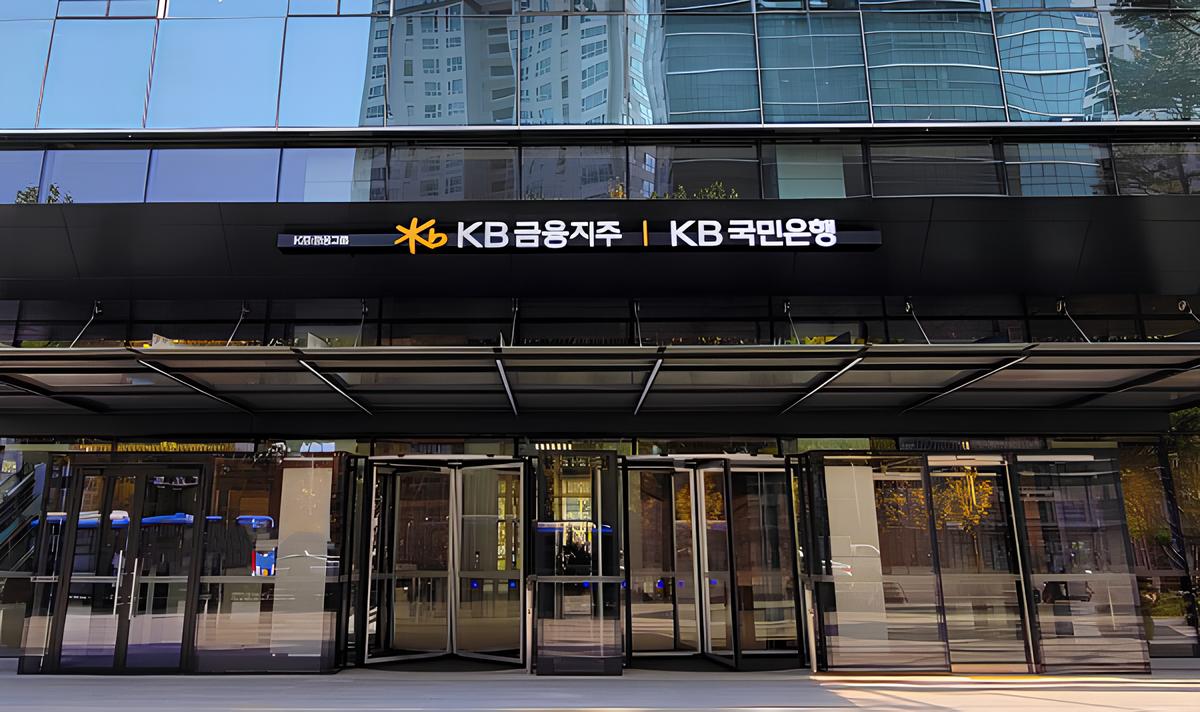| 분야 | 고객 맞춤 금융플랫폼, KB국민은행 | ||
|---|---|---|---|
| 한줄입력 | "개인정보 통합 관리 시스템으로 정보보호 점검 체계를 강화할 수 있었습니다" | ||
| 영문썸네일 | |||
✔ KB국민은행의 고민
고객 정보의 외부 유출 차단 필요
개인화됐던 업무 결과물 문서 조직 자산화 필요
재택근무 시 업무 연속성 유지 및 협업의 어려움
✔ Destiny ECM 도입성과
고객정보 문서 접근 권한 설정으로 보안 정책 강화
문서 중앙 집중화 관리 체계 전용 Drive 구축으로 문서 자산화
전용 Drive 내 모든 업무 문서 저장 및 공유로 스마트워크 환경 구축

고객 인터뷰 기사 전문
문서 유실 위험 없이 어디서든 협업할 수 있는 ‘KB국민은행-Drive’
KB국민은행이 차별화된 고객정보 보호 정책을 실현하겠다 선언한 데 이어 효율적이고 체계적인 고객정보 보호를 위해 사이버다임과 협업한다. 또한, 정보보호 유출 방지를 위한 전담 조직을 마련하고 정보보호 통합 플랫폼 및 개인정보 통합 관리 시스템 등으로 정보보호 점검 체계 강화에 나섰다.
문서보안, 체계적인 ‘개인정보 통합 관리 시스템’으로
KB국민은행은 고객정보의 외부 유출을 차단하기 위해 먼저, 전산센터 출입 시 X-Ray 검색대 통과 절차를 준수하고, PC 반출·입 시에는 포맷 의무 수행 및 필수 보안 프로그램을 설치해야 하는 등 철저한 통제 절차를 수립·이행하도록 했다. 또한, PC의 내외부 네트워크의 망을 분리하고 PC 내 모든 문서는 암호화돼 관리된다. 고객정보 접근 시에는 추가 인증을 거치도록 적용하고, 인가된 직원만 접근을 허용하는 강화된 보안 정책을 시행했다.
대외적으로는 전자금융사기로부터 고객정보 탈취 등을 예방하고자 신종 사기 유형에 대비해 이상거래 탐지 시스템(FDS)을 고도화하고 탐지 범위를 확대 운영하고 있다. 아울러, KB국민은행은 당행 업무를 수탁받아 처리하는 외부 업체에 대해 고객정보 관리 실태에 대한 현장을 점검하고 있으며, 개인정보의 수집, 이용, 제공, 보관, 파기 등 일련의 과정에 대한 상시 모니터링 및 체계적인 관리를 위한 개인정보 통합 관리 시스템을 구축해 주기적으로 점검 및 관리하는 것으로 전해졌다.
KB국민은행 관계자에 따르면 KB금융그룹 내 그룹사 간 고객정보 제공 및 활용 시에는 승인, 점검, 보고 절차를 규정화하고, 고객정보 요청·제공 승인 시스템을 운영, 점검하는 등 관련 법령을 준수하고 있다. 또 ISMS(국내인증), ISO27001(국제인증) 인증 취득을 통해 정보보호 관리 체계를 인정받기도 했다.
안전하게 협업 가능한 문서 관리 시스템, KB국민은행-Drive
KB국민은행은 2019년 2월부터 사이버다임의 문서중앙화 솔루션을 도입해 오랫동안 개인화됐던 업무의 결과물이자 지식 자산인 문서를 조직 자산화하고, 퇴사자에 의한 문서 유실 위험 없이 안전하게 협업할 수 있도록 KB국민은행-Drive를 구축했다고 밝혔다.
KB국민은행-Drive는 문서(파일)의 중앙 집중화 관리 체계를 구현한 ‘문서 관리 시스템’으로, 새롭게 작성하는 문서나 기존 문서를 PC 내 저장장치가 아닌 중앙 저장소에 저장하고, 문서를 체계적으로 관리해 활용 및 공유함으로써, 문서의 공유 자산화 및 사무실과 동일한 사무 환경에서 재택근무 및 분산근무가 가능하도록 스마트워크 환경을 제공한다. 현재 코로나19로 인해 재택근무나 분산근무를 할 때도 B은행-Drive를 활용해 업무 연속성을 유지할 수 있어 직원들은 문서 공유를 통해 중복 보고서 작성을 방지하고 타부서의 보고서를 활용할 수 있게 돼 빠른 문서 작업이 가능해졌다.
구체적인 도입 효과로는 먼저, 사용자 단말이나 VDI 내 디스크 드라이브에는 문서를 저장할 수 없고, KB국민은행-Drive에만 문서를 저장할 수 있게 돼 업무 중 생산되는 모든 문서는 중앙 집중화되고 은행 자산화된다. 또한, 기존에 가지고 있던 문서들도 초기 문서중앙화 툴을 이용해 B은행-Drive에 담을 수 있다. 이에, 중앙화된 문서를 임의로 삭제하는 일이 없어져 안전하게 자산을 지킬 수 있게 됐다.
다음으로는, 보안이 강화됐다. KB국민은행 관계자에 따르면 기존에는 사용자 단말에 문서가 있어 PC마다 개인정보가 포함된 문서가 있는지 검사해야 했다. 또, 모든 문서를 암호화하거나 개인정보가 포함된 문서를 별도 관리해야 했기 때문에 이 과정에서 오탐이나 누락의 여지가 있었다. 하지만 이번 구축으로 중앙에서 개인정보가 들어 있는 문서를 탐지하고 식별, 관리하는 것이 수월해지고 보안이 강화됐다. 중앙에 있는 문서를 반출할 때는 통합 반출 시스템과 연계해 기존 PC에서 했던 것과 같이 원클릭으로 반출 요청을 할 수 있게 됐다.
마지막으로, 협업이 편리해졌다. 윈도우 탐색기에 드라이브 형태로 붙어 있는 KB국민은행-Drive는 개인 PC의 드라이브와 폴더를 이용하는 것과 동일한 사용자 인터페이스(UI)와 사용자 경험(UX)을 제공한다. 중앙화되어 있는 은행 내 문서들을 윈도우 탐색기에서 쉽게 검색하고 활용하는 것이 가능해졌기 때문에 권한이 있는 문서에 한해 검색·접근할 수 있으므로 보안도 지킬 수 있다.
아울러, 문서의 유통도 접근 권한이 포함된 URL로 함으로써 메일이나 메신저 등을 통해 손쉽게 공유할 수 있다. KB국민은행 관계자는 “내부 업무망과 인터넷망이 물리적으로 분리돼 있고, 내부 업무망도 VDI를 통해 논리적 망분리가 돼 있다. 보안적으로 유출의 위험은 적을 수 있으나 이러한 환경에서는 문서와 관련한 협업에 애로 사항이 있게 마련이다. 또한, 업무 변경이나 퇴사로 인한 문서의 유실 문제도 해결할 수 없었는데 이번 문서 관리 시스템으로 해답을 찾을 수 있었다” 고 말했다.
이어 “최초의 도입 목적인 자산화는 어느 정도 달성했고, 이제는 협업을 더 강화하기 위해 모바일 단말을 통한 문서 검색 및 조회는 물론, 편집까지 가능하도록 해 빠르게 확산하는 포스 트 코로나 시대 업무 방식에 맞춰 임직원들의 편리한 업무 환경을 제공하고자 한다”고 전했다.
출처 : CCTV뉴스 월간지 2021.04 문서보안 특집호 <KB국민은행, ‘문서중앙화’로 고객정보 보호하고 안전한 근무 환경 보장>

 한국어
한국어







